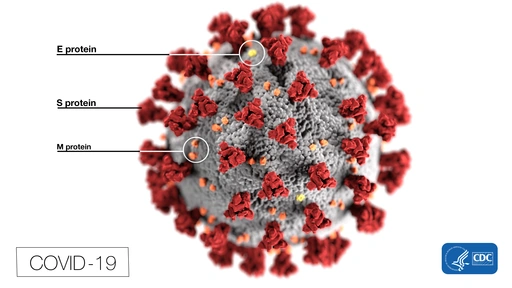
Some thoughts stimulated by the coronavirus plague...
(We put this together originally back in March 2020, and just updated it in November 2020)
1. The Covid-19 pandemic is a bad thing. It makes people sick. It kills some of them. It scares many more. It stops people from getting together to do the things they want to do. It messes up the stock market, wiping out life savings and opportunities. (Yeah, it's come back now, but for sure some people got beaten up by it). It'll probably cause job losses. [This was written early; we've seen the massive job losses. We've seen some recovery, but there's still plenty of unemployment out there.] It destroys businesses and livelihoods. It's bad!
2. Does God want bad things to happen? No. (See the argument in True Christian Religion 43.)
3. Did God create a universe in which bad things can happen? Yes. Apparently. (If you accept that there is a God, etc. -- which will have to be another thread...). In a lot of ways, it's an incredibly dangerous universe, with black holes, and exploding stars, and incredible heat and cold. And yet, there is also at least one Goldilocks planet, where things are just right. Still dangerous, but beautiful and lush and amazing. It's a good place for human life to develop, where we can have the challenges of bad things, and develop the wisdom and staying power to deal with them.
4. What do you think is God's will in all this? Here's a piece of an answer: A good outcome of this plague could be for all of us to see and experience people helping each other, and nations helping each other. It's patchy, of course, but... as an example, efforts to develop an effective vaccine have been helped by a fairly early publication of the composition of the virus. There is an exchange of epidemiological data. There's communication. There's compassion. There's bravery. There's sacrifice, and generosity. There were charities in town that sent surplus medical supplies from the USA to China when the virus hit Wuhan hard. We see health care workers courageously caring for sick and contagious people. We've seen rapid advances in therapies, and generous sharing of information. And we've just managed to develop several vaccines against harmful new pathogens in less than a year.
As human beings, we've had, and still have, the opportunity to respond well or badly to this crisis. There is a helpful concept in the philosophy of stoicism, that is, that you cannot control all the things that will happen to you, but you can control how you respond.
God wants us to respond well. We certainly can, and will, and should, argue about how that would look. We should be able to do it without vitriol, without grandstanding, without hypocrisy, but with fair, calm consideration of facts. We have the freedom to do that. We can have the wisdom to do it.
If our primary motive is to love our neighbor as ourselves, some good things will happen.






